Visiting A ‘Nishiki Koi’ Farm – the Elegance and Power of the Colourful Carp

The elegance and power of the colourful carp, Nishiki Koi (Coloured Carp), is known far and wide around the world, yet very few people know of their origin, birthplace and laboured past. The Nishiki Koi have endured more than most but have emerged once again, bringing with them the perfect blend of explosive colours, stunning beauty, strength and resilience.
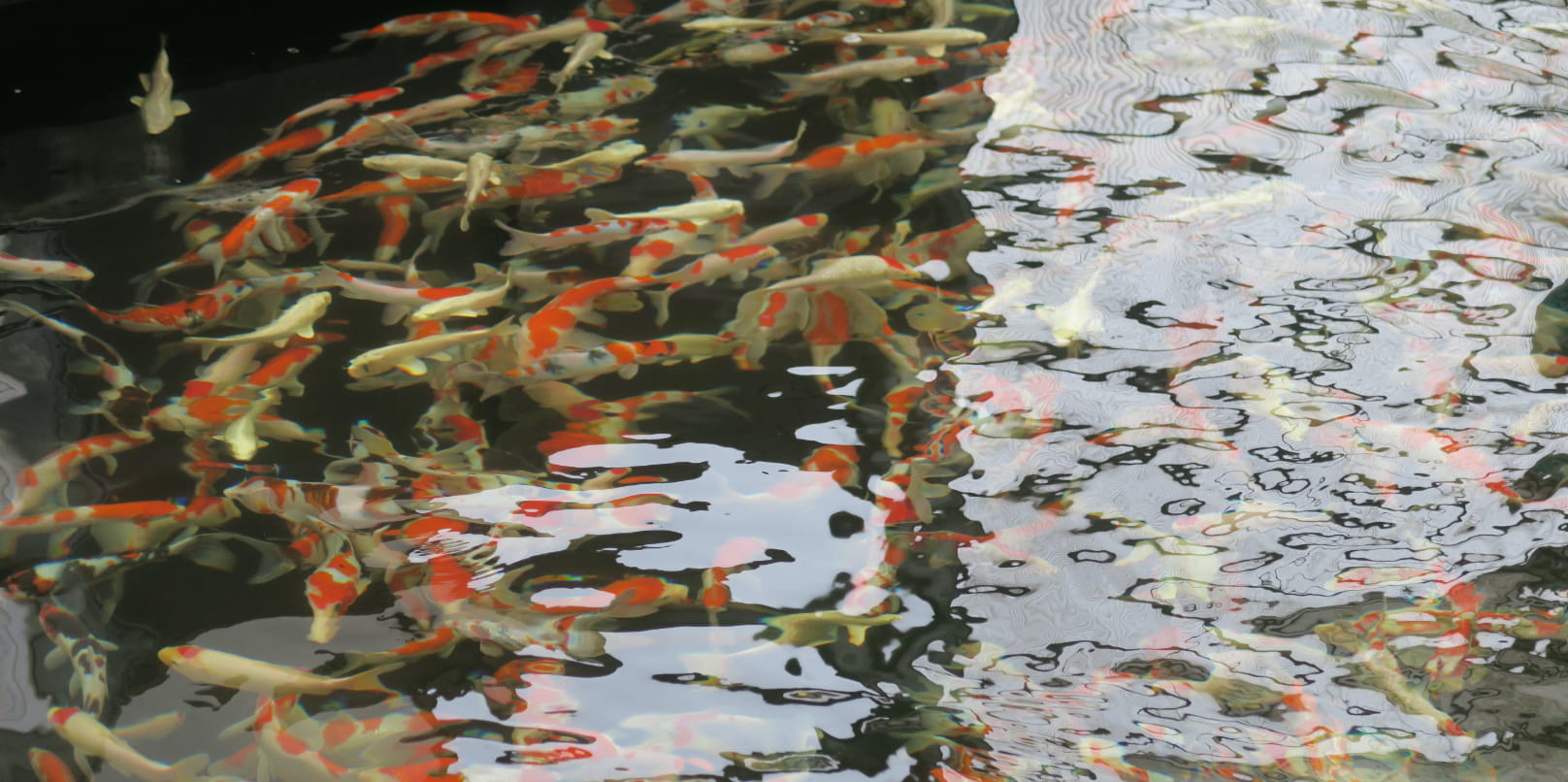
In 2004, a devastating earthquake hit Yamakoshi, the birthplace and origin of the Nishiki Koi, flooding their ponds, collapsing their cattle sheds and demolishing their homes. The people desperately rushed to save their precious Nishiki Koi, using helicopters to fly them to temporary ponds, in a desperate hope to save even just a few. Unfortunately, many were lost to the earthquake and the people, out of desperation, even began to eat those that didn’t make it. The industry took an immeasurable blow. Farming facilities were crushed, houses lost and the industry set on the brink of extinction. However, all was not lost. And, as the village began to rebuild itself, so did the industry, using the few Nishiki Koi as the starting place. Teams of young people were soon formed, each bringing new ideas into the industry, as their hopes were not simply to rebuild and regain what was lost, but to make the industry different and better.
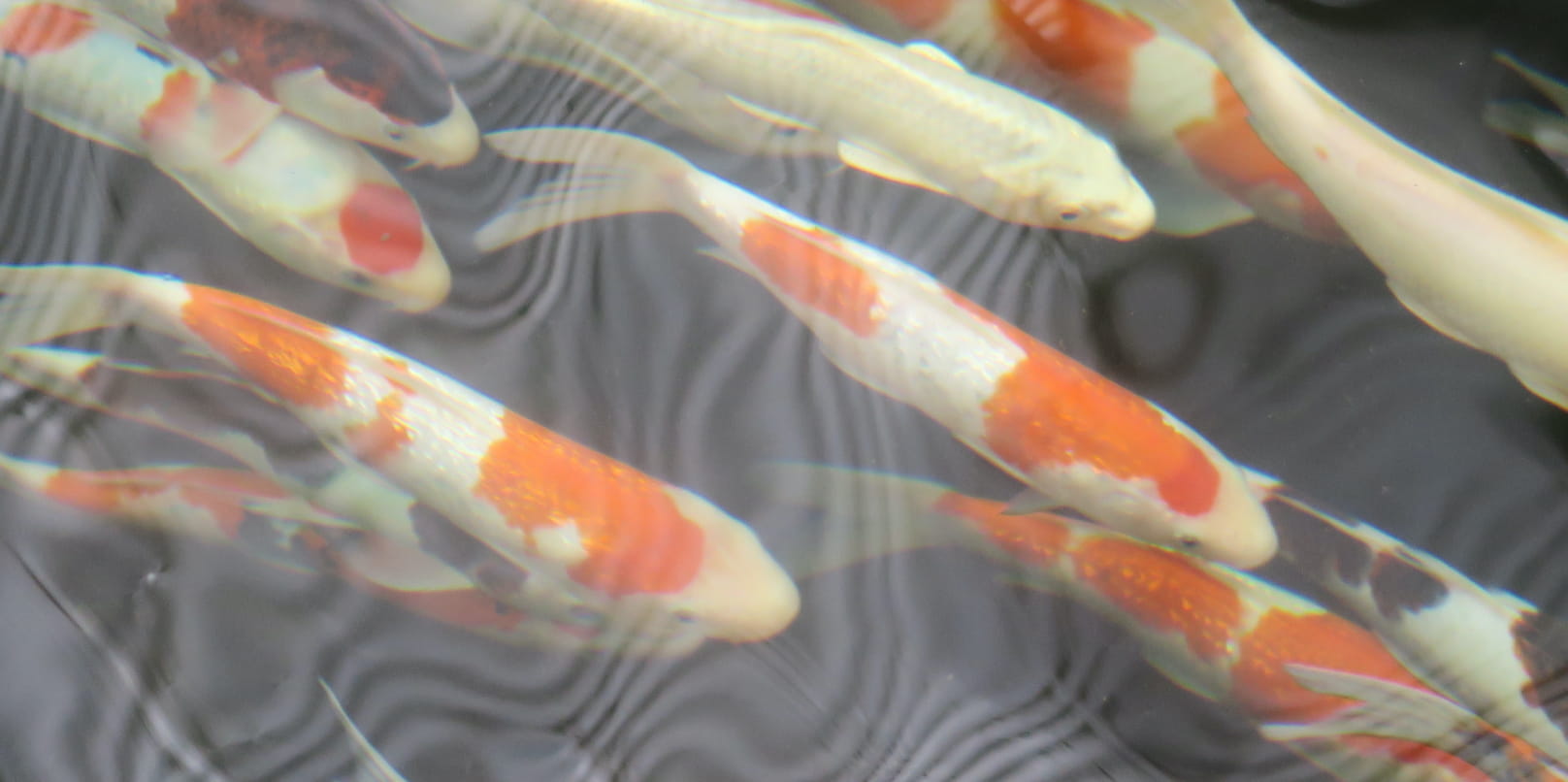
It was a good few years before the Nishiki Koi could return to the ponds that they once fled, but when they did, it was received with a great deal of happiness and celebration, as it was a true sign to the villagers that they were making big steps in regaining what they had once lost. And, in a true display of absolute resilience and strength, not only did the industry manage to get back to its former glory, it also actually improved and is now more vibrant and successful than it has ever been.

Upon visiting the farm, I found out exactly how popular and thriving the industry really is. Even though the farm I visited seemed surprisingly simple from the outside, I soon found out that this family of a father and his three sons, had grown their family business into something almost immeasurable to me. The family at Marushiage carp farm, whose business actually began with their grandfather, actually own around sixty ponds, scattered all around the village, with some being a good 10 minutes drive from the actual farm building itself. The ponds varied in size slightly, each containing a variety of more fully grown Nishikigoi and completed with an automated food dispenser, set to release food four times a day. It is here where the fish will grow and develop until it is time for them to be sold either at auction or through websites and visits.
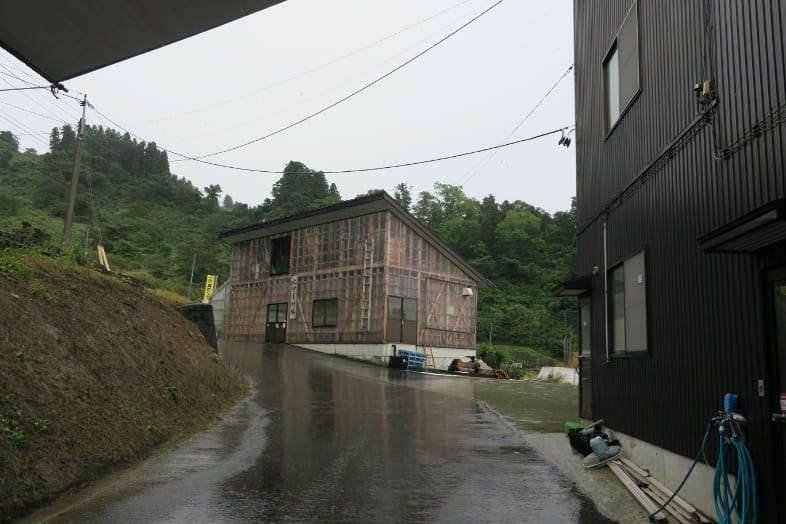
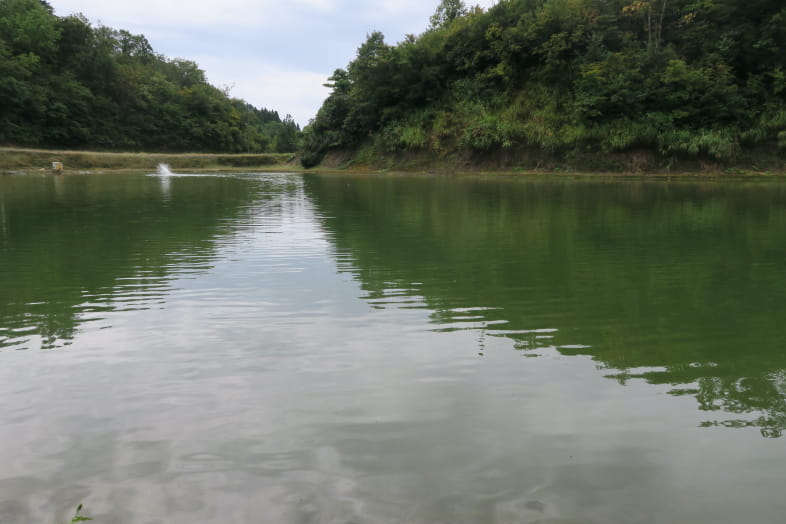
As the industry has developed, so too has their international market, particularly in Europe and also in America who have grown fond of the beautiful colours, patterns and elegance of the Nishiki Koi. In October, a great number will actually make the effort to visit the farms and the ponds in person, to be sure of obtaining the perfect Nishiki Koi in the various auctions that begin to take place. The season trails off in the Spring however, as attention and focus is switched to the precise and selective process of breeding the Nishiki Koi, to create the perfect shape, size and colours for the next season.
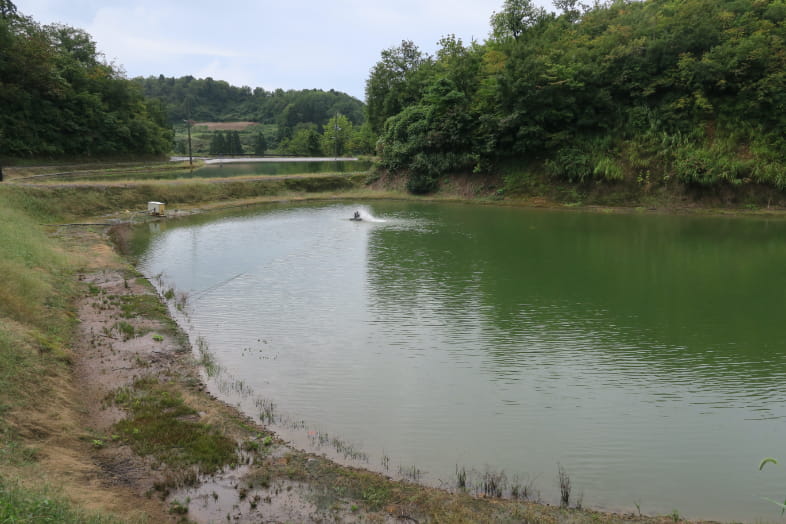
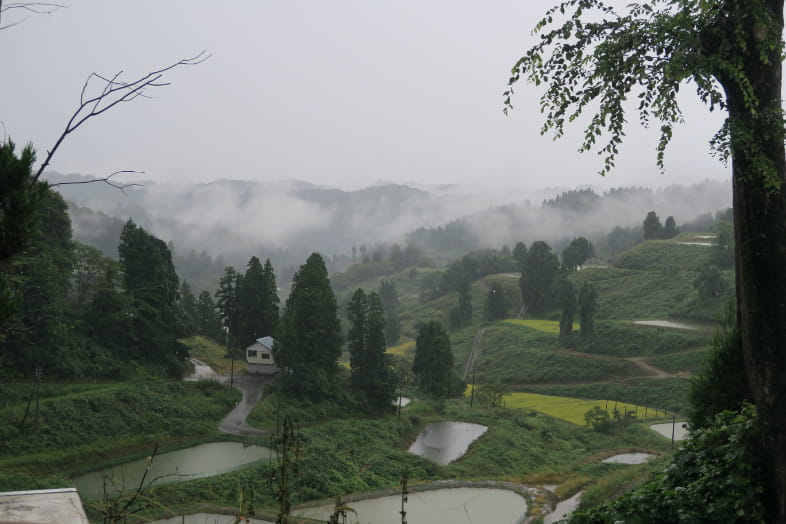
Although bred from the simple carp, the Nishiki Koi now come in a variety of different shapes, sizes, lengths and builds, each carrying their own individual patterning, vibrant colours and the specific name for their classified variety. The most popular variety among the Japanese people are the Tancho Nishiki Koi, which is the most traditional and one of the most simplistic of all the varieties, featuring just a single large, bright red spot on the top of it’s white head. Nishiki Koi can also feature warm oranges, dramatic reds, shimmering golds, whites and blacks in varying patterns and styles due to the precisely selected breeding process. There is also a great focus on breeding to create female fish, as these tend to have fuller, more muscular and more desirable figures than the male Nishikigoi.
When I first arrived at the farm, I was surprised by its simplicity. There were only two sheds that I could see and the first contained no Nishiki Koi. The second looked just like a greenhouse and contained two lively pools of young, small but still completely stunning fish that were only three weeks old. The tiny pool must have contained around thirty fish, following each other and flopping over each other to create some occasional stunning and surprising brief flying fish displays. They were full of energy, vibrancy and colour, all varieties living and developing together until the time comes to move to the big ponds.
There are around 10 – 15 farmers in the area of Yamakoshi alone, varying from the serious full-timers to those who use it as a delightful hobby. As a result, ponds scatter the landscape, featuring almost as frequently as the golden rice fields in and amongst the tiers of the landscape. And, if the beautiful carving patterns of the vibrant and elegant Nishikigoi aren’t enough to bring you to Yamakoshi, the stunning views of the distant mirrored ponds just might be.
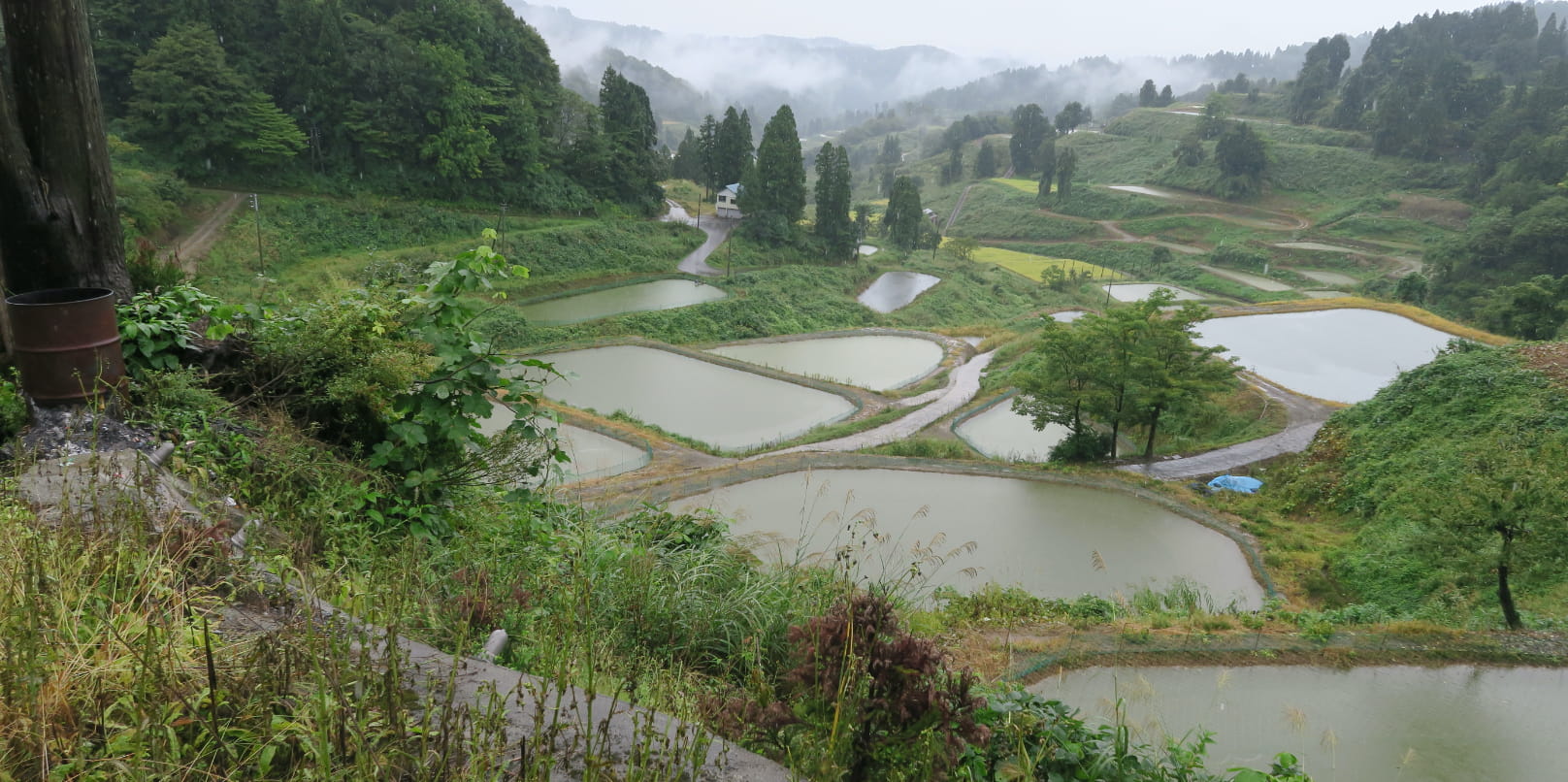
The farms are not usually available for tours or viewings, yet I was lucky enough to be given a tour of the main farm and driven to some of the outlining ponds in the area. However, if you visit Yamakoshi, you are sure to see the colourful, watery imprint of the Nishiki Koi’s trail through a serine, blue canvas.


